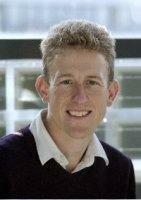
- Laboratory for Global Marine and Atmospheric Chemistry
- School of Environmental Sciences
- University of East Anglia
- Norwich
- NR4 7TJ
- UK
- +44 (0)
Tim's homepage
My research interests span the full range of Earth system timescales, from the formation of the planet 4.6 billion years ago to current and future human-induced global change. My main research tools are a spectrum of Earth system models, which I and my group are actively developing. We use the models with available data to test hypotheses about Earth system function. I am particularly interested in the feedbacks between life and its environment and how the resulting coupled system has evolved over time.
There’s a little bit about how I got into Earth system science in Science Careers and I was flattered to be listed by the Financial Times recently. For an update on the latest climate science see the Copenhagen Diagnosis.
Tipping points in the climate system
We have just written a new report for WWF and Allianz that looks in more detail at the impacts of crossing various climate tipping points. There is a rather nifty spinning globe on which you can find some videos of me describing the potential tipping elements in the climate system. The original work won the Times Higher Education Award for Research Project of the Year 2008. I have also written an introductory article (updated March 2009), and a commentary on the policy implications. The full paper was published in PNAS and is open access, so anyone should be able to download it. You can also get a copy from this site along with the supporting information. Surprising evidence that scientists occasionally exhibit tipping points in their level of atire can be found here.
Geoengineering evaluation
Our evaluation of the climate cooling potential of different geoengineering options is published in Atmospheric Chemistry and Physics. There is also a brief piece for the Green Room explaining what roles geoengineering might play in avoiding dangerous climate change. To keep up to date with our GeoEngineering Assessment and Research activity check out the GEAR website.
